According to the report presented by Deputy Minister of Finance Tran Quoc Phuong, the draft law completes regulations on the planning system.
In which, national planning includes: national master planning, national marine spatial planning, national land use planning, sectoral planning; regional planning; provincial planning; detailed sectoral planning; urban and rural planning; planning of special administrative- economic units as prescribed by the National Assembly.
The principle of planning is that lower planning must be consistent with higher planning, detailed sector planning must be consistent with the planning that the planning specifies and ensure harmony with the orientation of arrangement and spatial distribution of related regional planning and provincial planning. Provincial planning must be consistent with national planning, regional planning, and related sectoral detailed planning. Urban and rural planning must be consistent with provincial planning and sectoral detailed planning.
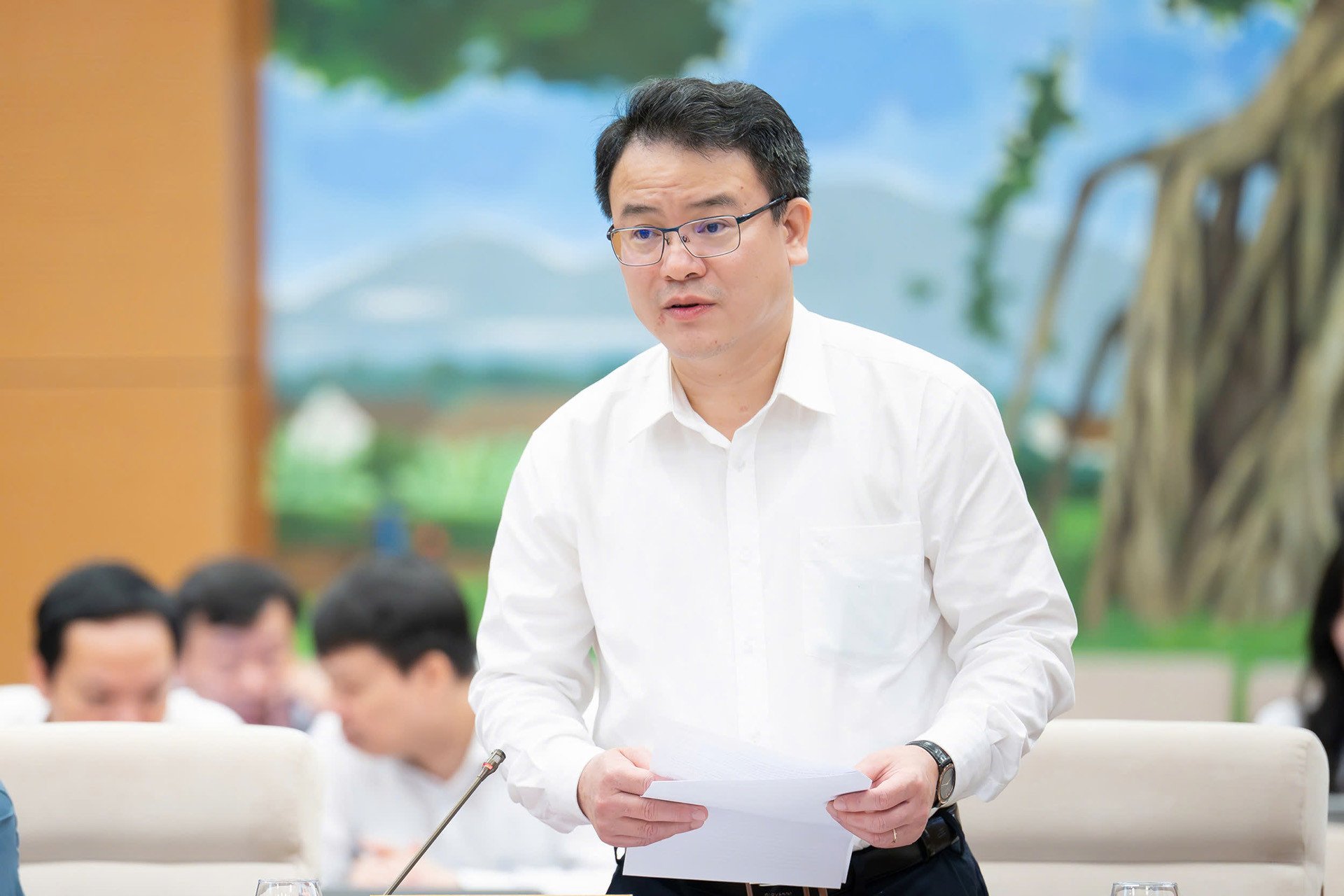
Regarding the authority to organize planning, the Government organizes the preparation of national master plans; ministries organize the preparation of national marine spatial plans, national land use plans, and sectoral plans; the Ministry of Finance organizes the preparation of regional plans; and provincial People's Committees organize the preparation of provincial-level plans.
Regarding the authority to decide and approve planning, the National Assembly decides on the national master plan. The Prime Minister approves the national maritime spatial planning, national land use planning and regional planning. The Minister approves sectoral planning and detailed sectoral planning. The Chairman of the Provincial People's Committee approves provincial planning. The authority to approve urban and rural planning is implemented according to the provisions of the law on urban and rural areas.
Speaking, Chairman of the National Defense, Security and Foreign Affairs Committee Le Tan Toi said that the draft law has added content on planning for national defense and security land use, clearly stipulating the need to divide the use of national defense and security land.

However, Mr. Toi expressed his concerns and asked the drafting committee to study. He pointed out the reality of handling conflicts between national defense and security land planning and socio-economic development and investment planning. This is a problem that still has many problems and takes a long time to resolve.
"Later, when national defense and security need to be met, the project will have already developed economically, so solving it will be costly and time-consuming," he emphasized the need to harmonize socio-economic development while still ensuring national security and defense.
He cited that at Tan Son Nhat airport, when dealing with the concrete piles (defense projects) on the airport, "it took several years", "when the Prime Minister went in there to deal with it, we were done".
Planning is very important, it is the life of the economy.
Vice Chairman of the National Assembly Nguyen Khac Dinh assessed that this is a very difficult and complicated law. He acknowledged that the content of the law submitted this time was carefully and elaborately prepared by the Government, with amendments and supplements to ensure consistency, in accordance with the change of administrative boundaries at two levels and the policy of decentralization, decentralization, creating growth momentum and new development space.
However, according to the Vice Chairman of the National Assembly, the draft law is "still too comprehensive".

Regarding sectoral planning, the Vice Chairman of the National Assembly said that previously there were opinions that more than 20,000 plans were too many and had to be put forward, but now they were put forward to decentralize to the minister. "If so, the transport sector will just let this land be planned for transport, and the irrigation sector will let this land be planned for irrigation," Mr. Dinh pointed out the unreasonableness.
According to him, national planning must be decided by the National Assembly, while sectoral planning must be approved by the Government. Emphasizing that planning is very important and is the lifeblood of the economy, Mr. Dinh stated that there are things that cannot be decentralized.
“What can be decentralized is decentralized, but there are also things that are definitely not decentralized... If sector planning is left to the ministers to decide, then each minister is in charge of a sector, and each minister is only for his own sector,” the Vice Chairman of the National Assembly noted.
The Vice Chairman of the National Assembly also suggested that the law amendment should focus on the things that really need to be changed. “This law is very heavy, if we are not careful, it will get stuck when it is put into practice,” Mr. Dinh suggested that it should only be “minimally amended”, and not be too comprehensive or detailed.
Vice Chairman of the National Assembly Tran Quang Phuong also raised the issue of comprehensively amending this law "has reached maturity". He agreed with Vice Chairman of the National Assembly Nguyen Khac Dinh and suggested that the Government and the drafting agency study and amend only a few articles that are problematic and are really bottlenecks to remove them. He acknowledged that this is a difficult law so it must be done step by step closely.
Speaking to clarify, Deputy Prime Minister Nguyen Chi Dung also stated that this is a difficult and complicated law. It took three sessions to pass the law, and there were many heated debates between ministries and branches before reaching a consensus. Mr. Dung emphasized that this is a big and difficult issue that has never been done before but still has to be done, it is mandatory to do.

He said that the drafting committee closely followed the direction of the Politburo that "it is necessary to thoroughly handle current difficulties, obstacles, and bottlenecks; to ensure consistency and unity in the legal system on planning; and to have transitional regulations to maximize inheritance of planning from established periods".
“The same goes for planning. Once established, there are also contradictions, overlaps, and conflicts, so we must follow the correct method,” said the Deputy Prime Minister. He said that, implementing the direction of the Politburo, the Government proposed to amend the Law on Comprehensive Planning to remove obstacles, contradictions, conflicts, and bottlenecks.
Source: https://vietnamnet.vn/giai-quyet-may-u-be-tong-o-san-bay-tan-son-nhat-cung-mat-may-nam-troi-2452409.html


![[Photo] Ready for the 2025 Fall Fair](https://vphoto.vietnam.vn/thumb/1200x675/vietnam/resource/IMAGE/2025/10/14/1760456672454_ndo_br_chi-9796-jpg.webp)





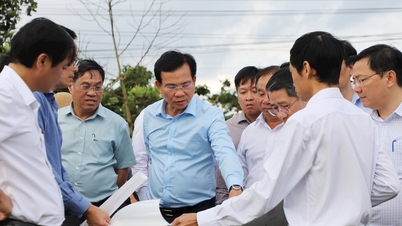





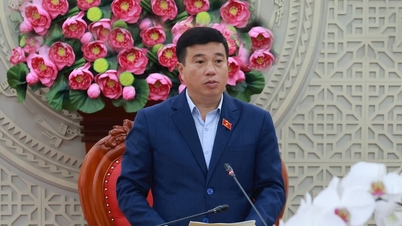
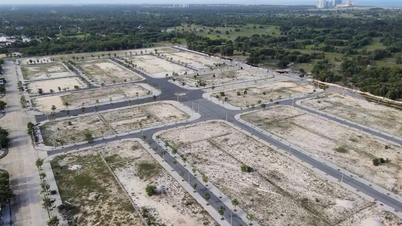


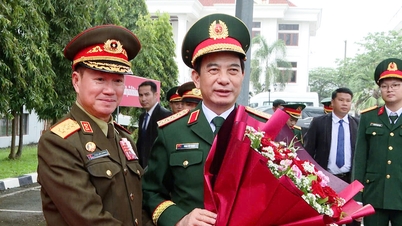
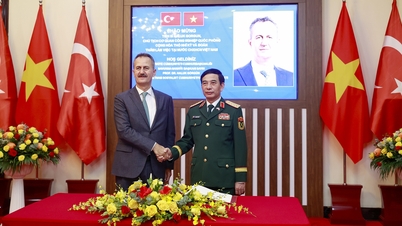


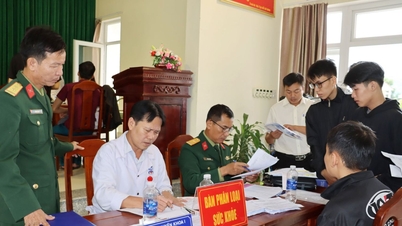





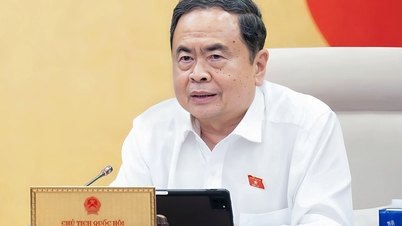














































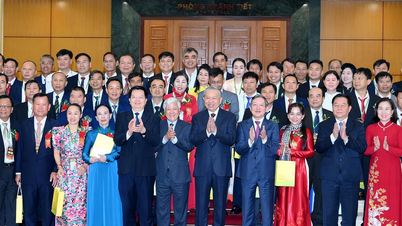
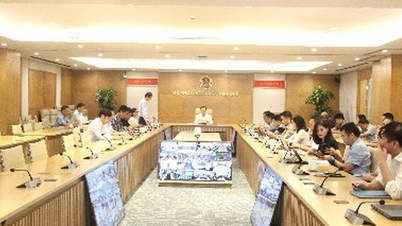




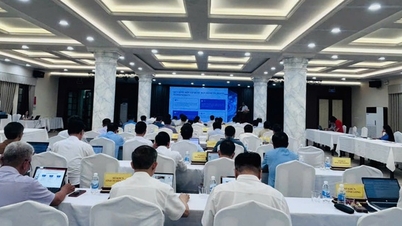


























Comment (0)